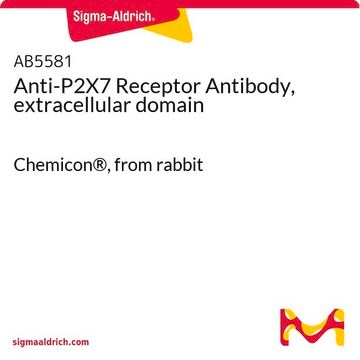22414
Cerium(IV) oxide
coating quality, 99.5%, granular
Synonym(s):
Ceric oxide, Ceric oxide, ceria
Sign Into View Organizational & Contract Pricing
All Photos(1)
About This Item
Linear Formula:
CeO2
CAS Number:
Molecular Weight:
172.11
EC Number:
MDL number:
UNSPSC Code:
12352300
Recommended Products
grade
coating quality
Assay
99.5%
form
granular
manufacturer/tradename
Umicore Materials AG
particle size
0.7-3.5 mm
density
7.13 g/mL at 25 °C (lit.)
SMILES string
O=[Ce]=O
InChI
1S/Ce.2O
InChI key
CETPSERCERDGAM-UHFFFAOYSA-N
Looking for similar products? Visit Product Comparison Guide
Application
The additon of CeO2 to CuO/TiO2 increases specific surface area and inhibits sintering and pore size growth at high temperatures.
Other Notes
Sales restrictions may apply
Storage Class Code
13 - Non Combustible Solids
WGK
WGK 1
Flash Point(F)
Not applicable
Flash Point(C)
Not applicable
Personal Protective Equipment
dust mask type N95 (US), Eyeshields, Gloves
Choose from one of the most recent versions:
Certificates of Analysis (COA)
Lot/Batch Number
Sorry, we don't have COAs for this product available online at this time.
If you need assistance, please contact Customer Support.
Already Own This Product?
Find documentation for the products that you have recently purchased in the Document Library.
Cecilia Mondelli et al.
Chimia, 66(9), 694-698 (2012-12-06)
The heterogeneously catalyzed gas-phase oxidation of HCl to Cl(2) offers an energy-efficient and eco- friendly route to recover chlorine from HCl-containing byproduct streams in the chemical industry. This process has attracted renewed interest in the last decade due to an
Vishal Shah et al.
PloS one, 7(10), e47827-e47827 (2012-10-31)
Cerium oxide nanoparticles have found numerous applications in the biomedical industry due to their strong antioxidant properties. In the current study, we report the influence of nine different physical and chemical parameters: pH, aeration and, concentrations of MgSO(4), CaCl(2), KCl
Gao Li et al.
Chemical communications (Cambridge, England), 48(98), 12005-12007 (2012-11-07)
The Au(25)(SR)(18)/CeO(2) nanocluster catalyst showed high activity in the homocoupling of aryl iodides (e.g. up to 99.8% yield with iodobenzene) and excellent recyclability.
Dengsong Zhang et al.
Nanoscale, 5(3), 1127-1136 (2013-01-04)
The MnO(x) and CeO(x) were in situ supported on carbon nanotubes (CNTs) by a poly(sodium 4-styrenesulfonate) assisted reflux route for the low-temperature selective catalytic reduction (SCR) of NO with NH(3). X-Ray diffraction (XRD), transmission electron microscopy (TEM), high-resolution TEM (HRTEM)
Zhen-Xing Li et al.
Nanoscale, 5(3), 1213-1220 (2013-01-10)
Translation of homogeneous catalysis into heterogeneous catalysis is a promising solution to green and sustainable development in chemical industry. For this purpose, noble metal nanoparticles represent a new frontier in catalytic transformations. Many challenges remain for researchers to transform noble
Our team of scientists has experience in all areas of research including Life Science, Material Science, Chemical Synthesis, Chromatography, Analytical and many others.
Contact Technical Service








